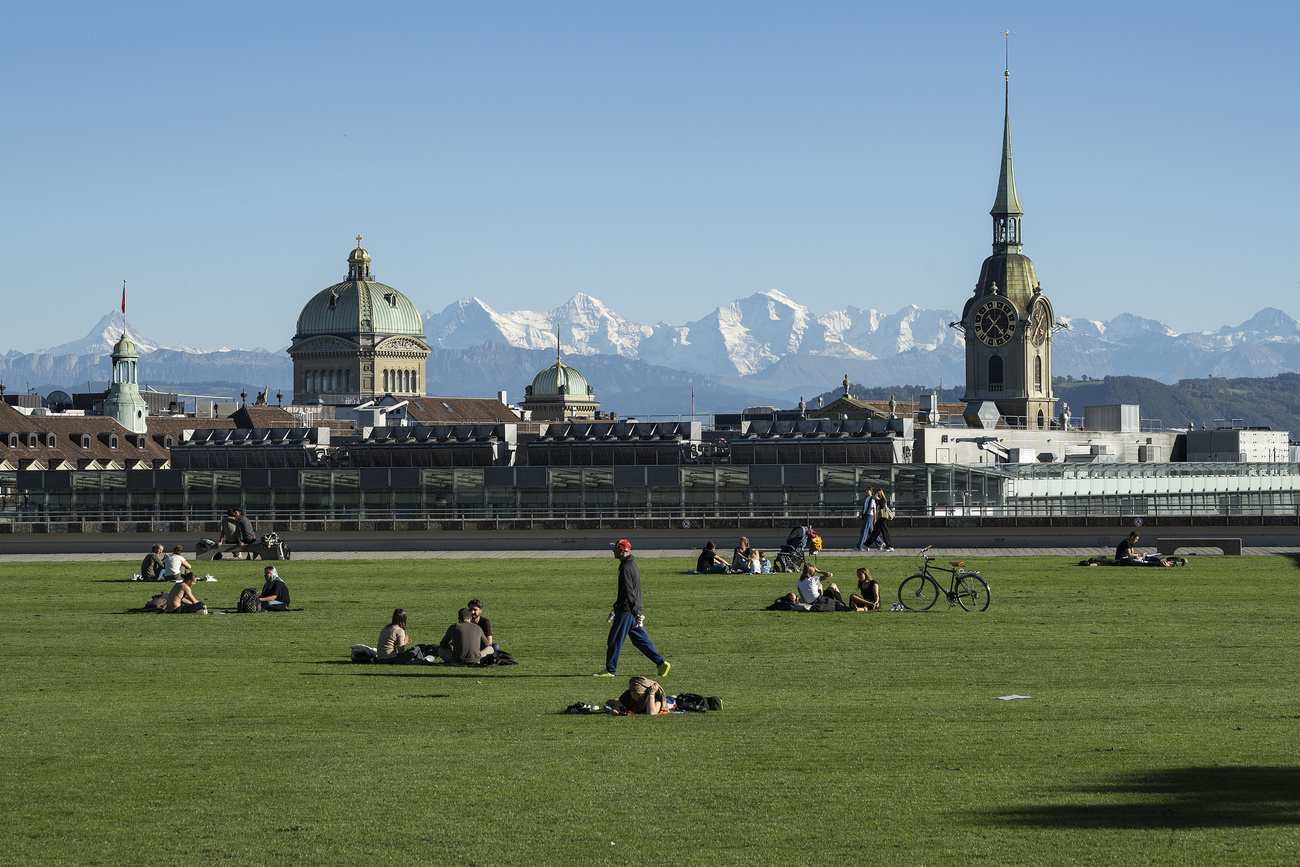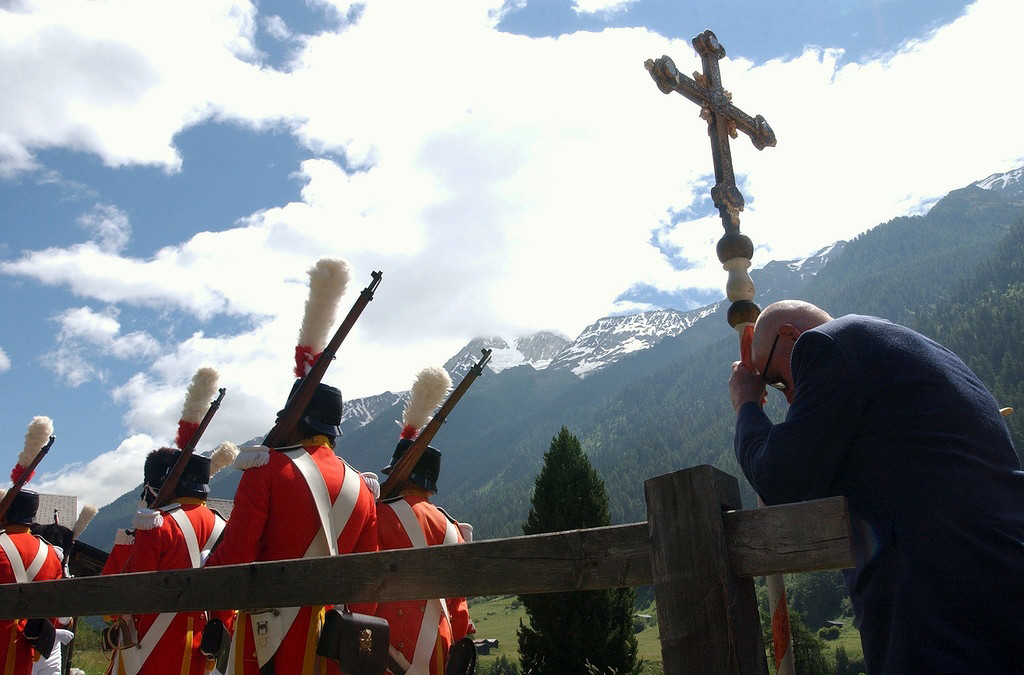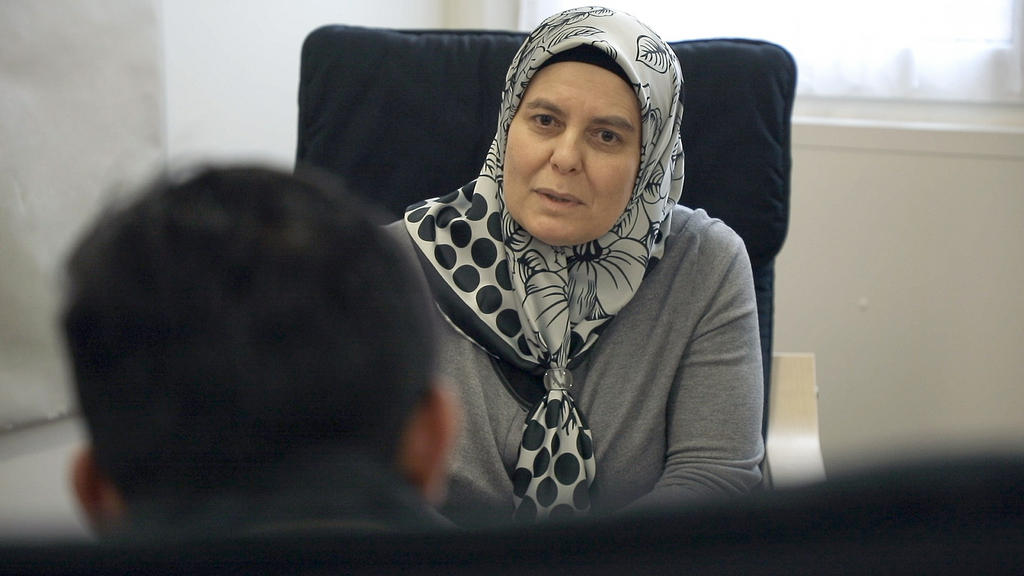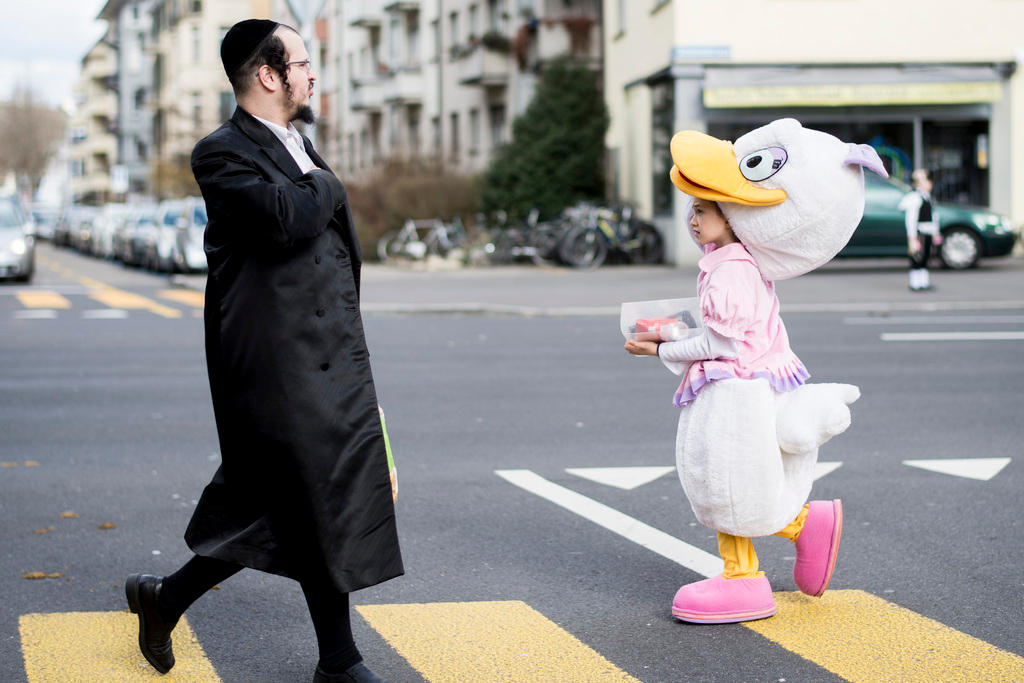Should Switzerland add a new article on religion to its Constitution?

The Swiss Federal Constitution says very little about religion. Most religious matters fall within the jurisdiction of the country’s 26 cantons. To mark the Constitution’s 175th anniversary, a public conference in Bern debated the merits of a new constitutional article on religion.
Although the Federal Constitution opens with a reference to the divine – “In the name of Almighty God!” – it contains few specifics about religion. Only two articles refer to it directly: Article 15 establishes freedom of religion and conscience, and Article 72 gives the cantons jurisdiction over the relationship between church and state.
Art. 15 Freedom of religion and conscienceExternal link
1 Freedom of religion and conscience is guaranteed.
2 Every person has the right to choose freely their religion or their philosophical convictions, and to profess them alone or in community with others.
3 Every person has the right to join or to belong to a religious community, and to follow religious teachings.
4 No person may be forced to join or belong to a religious community, to participate in a religious act, or to follow religious teachings.
Art. 72 Church and stateExternal link
1 The regulation of the relationship between the church and the state is the responsibility of the Cantons.
2 The Confederation and the Cantons may within the scope of their powers take measures to preserve public peace between the members of different religious communities.
3 The construction of minarets is prohibited.
In early September, Polit-Forum BernExternal link, an organisation that fosters political dialogue and education, hosted a debate on the Constitution and religion. The event, “How much religion should be included?External link”, was organised in collaboration with the Protestant Church in Switzerland (PCS) and the Roman Catholic Central Conference of Switzerland (RKZ).
The Constitution’s brevity on religion has a historical origin, according to Urs Brosi, general secretary of the RKZ. “The Old [Swiss] Confederacy [1291-1798] was not a unitary state with a monarch like France or Austria,” he told SWI swissinfo.ch. “Since religious affairs were the responsibility of the different cantons, very diverse relationships between state and religion developed”.
Religious tensions after the Reformation sparked several inter-cantonal wars. The last one, the 1847 Sonderbund war, led to the creation of the modern federal state. “Given this situation, when the first Constitution was drafted in 1848, the new federal state was not able to establish federal policy [on religion], so the issue remained in the hands of the cantons,” Brosi said.
Equal treatment
The Constitution’s handling of religion was the main topic at the Bern forum. Participants suggested that a new constitutional article might be necessary to ensure more equal treatment of the various faiths present in Switzerland.

More
Finding my religion
“Although migration has greatly diversified the religious landscape over the last few decades, laws concerning religion haven’t changed,” Brosi said. “The cantons have passed virtually no laws to recognise other religions. [Official] recognition is granted to Protestant and [Roman] Catholic churches and, in some measure, to Jewish and Christian Catholic [also known as Old Catholic] communities, but not to other religions, which is becoming difficult to justify.”
Establishing a new article in the Constitution could move things forward. “One solution would be to create federal recognition in addition to cantonal recognition,” Brosi said. “This would allow other religions to participate, for example, in chaplaincy services in hospitals or prisons or in religious instruction in schools.”
A new constitutional article would also highlight the importance of religion. “More than half of the population in Switzerland belongs to a religious community,” said pastor Rita Famos, president of the PCS. “It’s a force in society that should also be organised at a political level. I find it dangerous to say that [at the federal level] the state has nothing to do with religion.”
Centre of expertise
The conference panellists also proposed the creation of a federal centre of expertise on religion. This could take a number of forms, such as an extra-parliamentary federal commission on religion or a federal office for religion. But one thing is certain, the speakers felt: a specialised centre, along the lines of what is being done in canton Zurich, would be beneficial.
“The federal administration needs a centre with expertise on religious matters,” Famos said. “Laws are constantly being passed that affect religious communities, but no one has the relevant expertise. We have to intervene once things are already done or decided, which is always a bit painful.”
Brosi offered a specific example. “In January the government took initial steps to revise the federal law on asylum. The revision would permit federal financing of the chaplaincy services of religious communities that don’t collect a religious tax. Yet the question of religious tax is not determined at the federal level for any religion – because it depends on the cantons. During the revision process it became clear that no one had considered this aspect of the problem.”
No concrete plans
The proposals that emerged from Polit-Forum Bern are, for the time being, only wishful thinking. No plans exist to establish a new constitutional article or to create a federal centre of expertise.
“There are many difficult and very emotional issues, such as recognition of Islam. I think this is one of the main reasons that we can’t find a simple solution,” Brosi said.
“We advance by responding to issues as they arise, without any fundamental debate about state interaction with religious communities. For example, a study showed that a chaplaincy service helps reduce the potential for violence in federal asylum centres. Because of a preconceived idea that the problem mainly affects Muslim refugees, an experimental Muslim chaplaincy was established. This is typical: a problem arises and we find a solution. It’s admittedly very pragmatic, but the result is that there’s now a solution for Muslims but not for the other religious communities in the asylum centres.”
Edited by Samuel Jaberg. Translated from French by Katherine Bidwell
More

More
Switzerland catching up with demand for Muslim pastoral care

In compliance with the JTI standards
More: SWI swissinfo.ch certified by the Journalism Trust Initiative













You can find an overview of ongoing debates with our journalists here . Please join us!
If you want to start a conversation about a topic raised in this article or want to report factual errors, email us at english@swissinfo.ch.